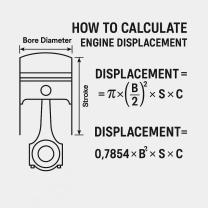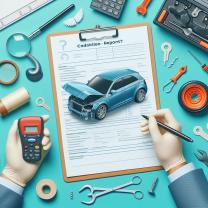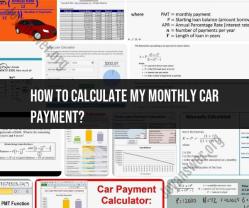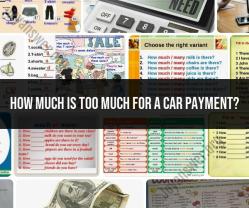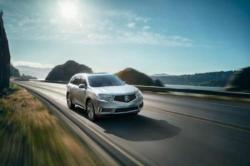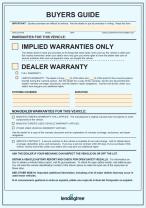What should I consider when deciding between leasing and buying a car?
Choosing between leasing and buying a car is a significant financial decision, and several factors should be considered to determine which option is best for your individual circumstances. Here are key factors to keep in mind:
1. Budget:
- Monthly Payments: Leasing typically involves lower monthly payments compared to buying a new car. Consider your monthly budget and whether you can comfortably afford the monthly lease payments or the higher loan payments associated with buying.
2. Ownership:
- Ownership Goals: Determine whether you want to own the car outright eventually. If you prefer to own your vehicle and build equity, buying is the better option.
3. Mileage:
- Driving Habits: Leases often come with mileage limits. Consider your average annual mileage and whether it aligns with the mileage cap specified in the lease agreement. If you drive significantly more than the lease allows, buying might be a better choice.
4. Wear and Tear:
- Vehicle Condition: Leased vehicles are expected to be returned in good condition, with minimal wear and tear. If you are prone to dings, scratches, or interior damage, buying may be more suitable since you won't face penalties for excessive wear and tear.
5. Long-Term vs. Short-Term:
- Duration of Use: Consider how long you plan to keep the vehicle. Leasing is typically for a shorter term (e.g., 2-3 years), while buying can allow you to keep the car for many years.
6. Down Payment:
- Initial Costs: Leases often require a lower down payment or sometimes no down payment, making it more accessible upfront. Buying usually involves a larger down payment.
7. Resale Value:
- Future Value: Consider the expected resale value of the vehicle. When you buy, you have control over how well you maintain the car, which can affect its resale value. Leases rely on the car's projected residual value.
8. Customization:
- Modifications: If you want to customize or modify the vehicle, buying is the better choice, as leased cars must typically be returned in their original condition.
9. Financial Situation:
- Credit Score: Your credit score can impact the terms of your lease or loan. Leasing may be more accessible with a lower credit score, while buying may offer more favorable loan terms with a higher score.
10. Tax Considerations:
- Tax Deductions: Depending on your location and situation, there may be tax advantages to leasing or buying. Consult a tax professional for guidance on potential deductions or benefits.
11. Insurance Costs:
- Insurance Rates: Insurance rates can differ between leased and owned vehicles. Compare insurance costs for both options.
12. Future Needs:
- Life Changes: Consider how your life circumstances might change in the future. Leasing may be more suitable for those who want to drive a new car every few years, while buying provides long-term stability.
It's essential to weigh these factors against your personal preferences and financial goals. Both leasing and buying have their advantages and disadvantages, so choose the option that aligns best with your needs, budget, and future plans. It's also a good idea to consult with a financial advisor or car expert to help you make an informed decision.


